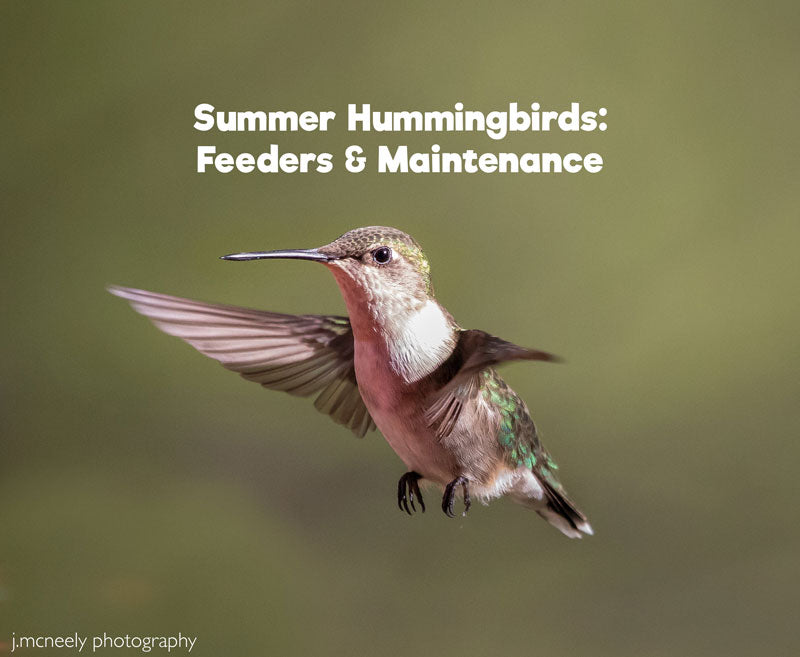Offer
Provide additional details about the offer you're running.
Provide additional details about the offer you're running.
Provide additional details about the offer you're running.

Here in the Northern Hemisphere, today marks the first day of summer for the 2018 season. As such, we wanted to touch on one species of birds that are synonymous with summer here in the Ottawa area; hummingbirds.
These small, high-speed birds are a favourite among birders of all walks of life and one we are treated to exclusively this time of year here in Eastern Ontario. With the temperatures on the rise through much of June, we have been treated to a great number of hummers in the area this year – some of the highest numbers we’ve seen over the past two or three years, in fact.
With that in mind, we wanted to touch on some important factors this time of year regarding hummingbirds and the feeders you might have hanging around your home and yard.
As with any feeder, maintenance is required to keep our backyard birds healthy and safe and with the sweet nectar involved with our hummers paired with the soaring temps, now is as important a time as ever to keep them in tip-top shape.
If you are running a hummingbird feeder in your yard, you know how enjoyable these birds can be to have around. That said, despite their size, these birds are tremendously feisty and territorial.
If you have experienced some action around your feeder but have since found that you have very little visitors, it could be that there is one hummer dominating the feeder. In cases such as this, we always recommend multiple feeders. This year, given the number of hummingbirds in the area, we are running with three feeders – all of which are very busy throughout the day.
If you find that action has dropped off, or are experiencing high volume, enlist the help of another feeder to ensure there is nectar for all.
Nectar is sweet and sticky and can quickly become toxic in the summer heat if not properly tended to. Always be sure to have a look at your feeders every couple of days and monitor the condition of both the feeders and the nectar inside.
The signs will be faint but a closer look will usually reveal the beginnings of mold accumulation which can quickly spread disease across the population of hummingbirds in our area. The best way to properly clean hummingbird feeders is to take them down at least once a week, empty the old nectar and soak in hot water with a touch of vinegar before thoroughly cleaning them.
Once cleaned, refill and re-hang and enjoy many more hours of buzzing action.
High Quality Blend